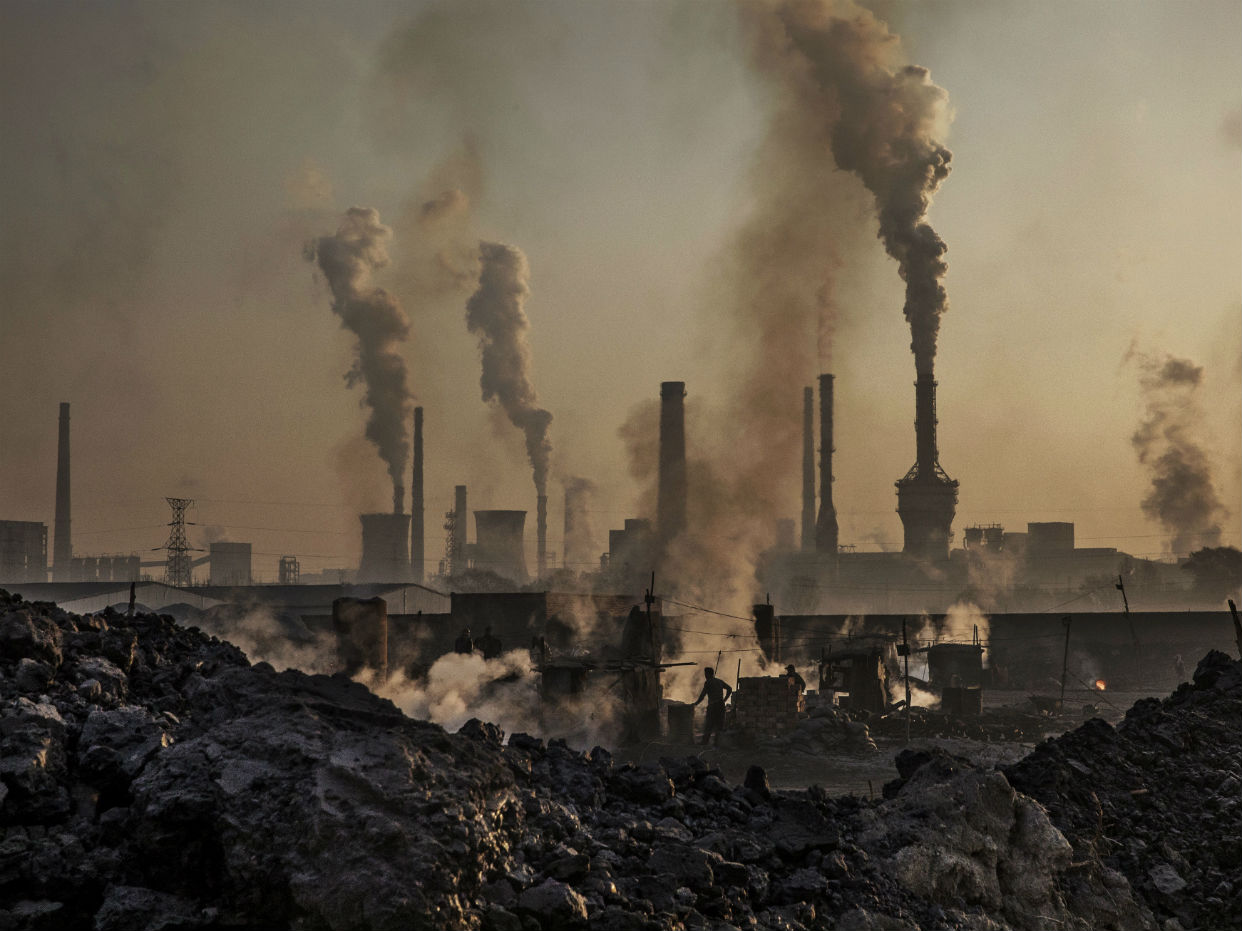Environment reporters face harassment and murder
Green Blood study finds climate change reporting is ‘inherently dangerous’

A free daily email with the biggest news stories of the day – and the best features from TheWeek.com
You are now subscribed
Your newsletter sign-up was successful
Thirteen journalists who were investigating environmental issues have been killed in recent years, according to a new study from the Committee to Protect Journalists.
The CPJ says many more journalists covering climate change are facing violence, intimidation, harassment, and lawsuits. As it investigates another 16 deaths, it believes the tally of murders may be as high as 29.
The Guardian points out that such a figure would make this field of journalism “one of the most dangerous after war reporting”.
The Week
Escape your echo chamber. Get the facts behind the news, plus analysis from multiple perspectives.

Sign up for The Week's Free Newsletters
From our morning news briefing to a weekly Good News Newsletter, get the best of The Week delivered directly to your inbox.
From our morning news briefing to a weekly Good News Newsletter, get the best of The Week delivered directly to your inbox.
The CJP report, entitled Green Blood, has focused particularly on the mining industry. Three journalists have died while reporting on the sector in the Phillippines.
There have also been deaths in Tanzania, which has slipped 25 places on the World Press Freedom Index produced by Reporters Without Borders. It now ranks 118th out of 179 countries.
“Journalists [in Tanzania] are attacked without reason,” Ryan Powell, a media development specialist working in Africa, said. “Police will harass journalists, and people do not interfere.”
India is revealed to be one of the most dangerous places to be an environmental journalist – three of the 13 identified as having been killed were from the country.
A free daily email with the biggest news stories of the day – and the best features from TheWeek.com
Shortly before his death in 2015, the Indian journalist Jagendra Singh wrote on social media about threats he believed he faced for investigating sand mining in northern India.
“Politicians, thugs, and police, all are after me,” he warned. “Writing the truth is weighing heavily on my life.” Since his death, two other journalists have been killed while investigating sand mining in India. Karun Misra died in February 2016, and Sandeep Sharma was killed in March 2018.
The other reporters named in the Green Blood study died in Panama, Colombia, Russia, Cambodia, Myanmar, Thailand and Indonesia.
Bruce Shapiro, the director of the Dart Center for Journalism and Trauma, says: “Environmental issues involve some of the greatest abuses of power in the world and some of the greatest of concentrations of power in the world.
“I’m hard put to think of a category of investigative reporters who are routinely dealing with more dangerous actors. Investigative reporting on the environment can be as dangerous a beat as reporting on narco smuggling.”
CPJ executive director, Joel Simon, says: “Reporting such stories for national and international media often involves travelling to remote communities and confronting powerful interests. This makes it inherently dangerous.
“This is not a new issue, but it has become more acute as climate change has accelerated and environmental change more directly impacts people’s lives. I don’t see that changing any time soon, which is why it is so important to report on environmental issues despite the risk.”
-
 Sepsis ‘breakthrough’: the world’s first targeted treatment?
Sepsis ‘breakthrough’: the world’s first targeted treatment?The Explainer New drug could reverse effects of sepsis, rather than trying to treat infection with antibiotics
-
 James Van Der Beek obituary: fresh-faced Dawson’s Creek star
James Van Der Beek obituary: fresh-faced Dawson’s Creek starIn The Spotlight Van Der Beek fronted one of the most successful teen dramas of the 90s – but his Dawson fame proved a double-edged sword
-
 Is Andrew’s arrest the end for the monarchy?
Is Andrew’s arrest the end for the monarchy?Today's Big Question The King has distanced the Royal Family from his disgraced brother but a ‘fit of revolutionary disgust’ could still wipe them out
-
 Epstein files topple law CEO, roil UK government
Epstein files topple law CEO, roil UK governmentSpeed Read Peter Mandelson, Britain’s former ambassador to the US, is caught up in the scandal
-
 Iran and US prepare to meet after skirmishes
Iran and US prepare to meet after skirmishesSpeed Read The incident comes amid heightened tensions in the Middle East
-
 Israel retrieves final hostage’s body from Gaza
Israel retrieves final hostage’s body from GazaSpeed Read The 24-year-old police officer was killed during the initial Hamas attack
-
 China’s Xi targets top general in growing purge
China’s Xi targets top general in growing purgeSpeed Read Zhang Youxia is being investigated over ‘grave violations’ of the law
-
 Panama and Canada are negotiating over a crucial copper mine
Panama and Canada are negotiating over a crucial copper mineIn the Spotlight Panama is set to make a final decision on the mine this summer
-
 Why Greenland’s natural resources are nearly impossible to mine
Why Greenland’s natural resources are nearly impossible to mineThe Explainer The country’s natural landscape makes the task extremely difficult
-
 Iran cuts internet as protests escalate
Iran cuts internet as protests escalateSpeed Reada Government buildings across the country have been set on fire
-
 US nabs ‘shadow’ tanker claimed by Russia
US nabs ‘shadow’ tanker claimed by RussiaSpeed Read The ship was one of two vessels seized by the US military